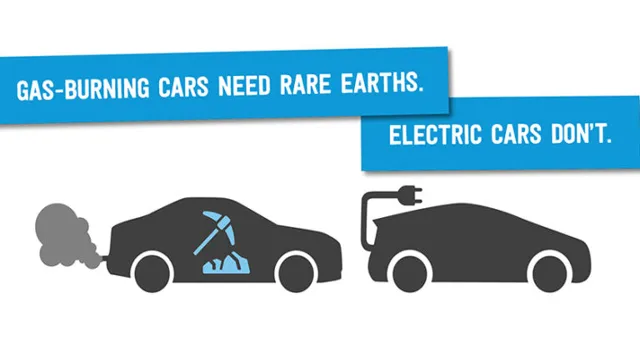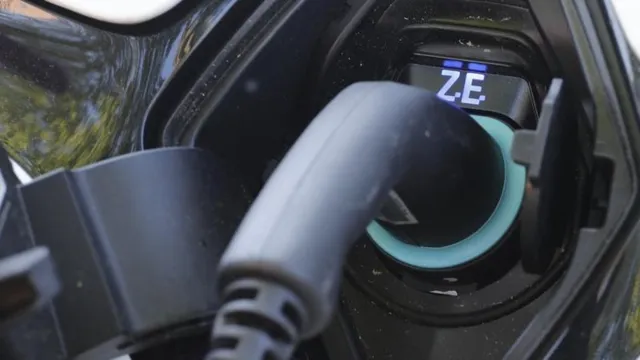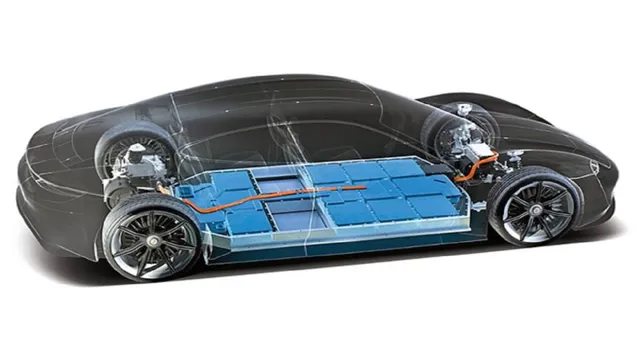Unlocking the Mystery: How Electric Car Batteries Hold Their Charge
Electric car batteries are a crucial component of electric vehicles, providing the power that drives these environmentally-friendly cars. While they offer many benefits, such as zero emissions and lower overall maintenance costs, many people are left wondering how long these batteries hold a charge. The answer to this question is not as straightforward as one may think, as it depends on many factors, including the type of battery, its age, and the driving conditions.
In this blog post, we will dive deeper into electric car batteries and explore how they hold a charge over time. So, buckle up, and let’s explore the battery life of electric cars!
Battery Composition and Capacity
When it comes to electric cars, one of the most important factors to consider is the battery composition and capacity. The battery is what powers the car, and the last thing you want is to be stranded with a dead battery on the side of the road. So, how long does an electric car battery hold a charge? Well, the answer varies depending on the type of battery, the car’s make and model, and driving habits.
Lithium-ion batteries are the most commonly used battery in electric cars and have the highest energy density. They typically last anywhere from 8 to 10 years, or up to 200,000 miles. The capacity of the battery also plays a role in how long it will hold a charge.
The higher the capacity, the longer it will last. However, it’s important to note that extreme temperatures can impact the battery’s performance, so it’s best to avoid leaving your electric car in extremely hot or cold temperatures if possible. Overall, with proper care and maintenance, an electric car battery can hold a charge for a significant amount of time.
Lithium-ion vs. Lead-Acid Batteries
When it comes to comparing lithium-ion and lead-acid batteries, the composition and capacity of each type are essential factors to consider. Lithium-ion batteries are made up of a lithium-ion cathode, an anode typically made of graphite, and an electrolyte that allows for the flow of lithium ions between the electrodes. These batteries are known for their high energy density and long life span, making them a popular choice for many applications, from smartphones to electric cars.
On the other hand, lead-acid batteries consist of lead dioxide and lead electrodes, sulfuric acid electrolyte, and a separator. While they are less energy-dense than lithium-ion batteries, they can still provide high current outputs and are relatively inexpensive. It’s important to note that lead-acid batteries are not as durable or long-lasting as lithium-ion batteries, making them better suited for applications that don’t require as much energy storage.
Ultimately, choosing the right battery type depends on the specific needs of your application, such as energy density, power output, and lifespan.

Factors Affecting Capacity
When it comes to a battery’s capacity, one of the biggest factors is the battery composition. Different types of batteries have various capacities due to their compositions. For example, lithium-ion batteries are commonly used in portable devices such as smartphones due to their high energy density and long lifespan.
On the other hand, lead-acid batteries are used in vehicles for their ability to deliver large bursts of energy quickly. It is essential to consider the battery composition when selecting a battery for your device, as it directly affects the battery’s capacity and performance. Furthermore, using the wrong composition or type of battery can lead to damage or even explosions if the battery is not suitable for the device.
Always consult the manufacturer’s recommendations and follow proper usage guidelines to maximize the battery’s capacity and lifespan.
Range Anxiety: Myths and Realities
If you’ve ever considered purchasing an electric car, you may have heard the term “range anxiety.” This refers to the fear that your vehicle’s battery won’t hold a charge long enough for your daily driving needs or planned road trips. However, there are both myths and realities surrounding this issue.
While it’s true that older electric car models had shorter battery ranges, newer models can travel over 200 miles on a single charge. Additionally, many electric cars come with features like real-time battery monitoring and charging stations along major highways. These factors can significantly reduce the likelihood of running out of power while on the road.
However, it’s also important to plan ahead and map out charging stations if you’re traveling a long distance. So, if you’re worried about range anxiety when it comes to electric cars, know that while it was once a reality, advancements in technology have made it much less of a concern nowadays.
Electric Car Range vs. Gasoline Cars
Electric car range anxiety has been a significant concern for potential buyers, but the myths surrounding it are often unfounded. While it’s true that electric cars typically have a lower range compared to gasoline cars, the range is sufficient for most drivers’ daily activities. With advances in battery technology, electric cars now have a range of up to 400 miles, which is usually more than enough for most people.
However, driving an electric car like a gasoline-powered one can lead to range anxiety. Unlike gasoline cars, where you can simply pull into a gas station and refill your tank in a few minutes, electric vehicles require more planning. With electric vehicles, you have to consider the availability of charging stations, charging times, and the distance to your destination when planning a trip.
Even though charging an electric car takes longer than filling a gas tank, many people find that charging times are not a significant issue. Many electric car owners charge their cars overnight at home and have a full battery every morning. With the increasing availability of charging stations, recharging during long trips has also become more manageable.
In summary, while range anxiety is a genuine concern for electric vehicle owners and potential buyers, it’s often overstated. With proper planning and an understanding of the vehicle’s limitations, electric cars can be an excellent option for many drivers. As battery technology continues to improve, the range and convenience of electric vehicles will only get better.
Understanding EPA Ratings
When it comes to electric cars, one of the biggest concerns for drivers is range anxiety. This is the fear of running out of charge before reaching your destination and being stranded on the side of the road. However, many drivers may not fully understand electric vehicle range ratings and how they work.
The Environmental Protection Agency (EPA) provides an estimate of the number of miles an electric vehicle can travel on a single charge. This estimate is based on a standardized driving cycle and can vary depending on factors such as weather, driving habits, and terrain. Despite the myths surrounding range anxiety, the reality is that many electric vehicles on the market today have a range of over 200 miles, making them a viable option for daily commutes and even longer trips.
With more charging infrastructure being installed across the country, range anxiety is becoming less of an issue for drivers making the switch to electric.
Real-World vs. Ideal Conditions
Range anxiety is a commonly heard term in the electric vehicle (EV) world that describes the fear of running out of power before reaching the destination. While EVs have come a long way in terms of range improvement, it is crucial to distinguish real-world driving conditions from ideal ones. In reality, several factors affect the electric range of a vehicle, such as temperature, terrain, driving habits, and passenger/cargo load.
These factors can reduce the actual range of an EV, affecting the driver’s confidence in the vehicle’s capability. Nevertheless, this does not mean that EV drivers cannot overcome range anxiety. With planning, awareness, and a bit of experience, EV drivers can become more comfortable driving within the real-world range of their vehicles.
Furthermore, the growing infrastructure of public charging stations across the country has also eased some of the worries about range anxiety. Overall, range anxiety is a myth that can be debunked by understanding the realities of real-world driving conditions and EV technology.
Monitoring and Maintaining Battery Health
One of the most critical aspects of owning an electric car is ensuring that the battery can hold charge effectively. Regular monitoring and maintenance are crucial in this regard. The battery management system in modern electric cars monitors and maintains the battery’s health by regulating the charging rate, temperature, and current flow.
Keeping the battery in the optimal temperature range is crucial for its longevity, as high temperatures can cause faster degradation. Regularly charging the battery to its full capacity can also help maintain its health. However, it’s important to note that charging the battery to 100% regularly can also accelerate its degradation.
It’s crucial to find the optimal balance between charging the battery to its full capacity and not overcharging it. Properly monitoring and maintaining the battery is crucial to maximize the battery’s lifespan and ensure its smooth functioning.
Battery Management Systems
Battery Management Systems. If you own an electronic device that runs on batteries, battery management systems are an essential component that you may not be aware of. These systems monitor and maintain the health of the battery, ensuring optimal performance and longevity.
Battery health is essential, and ignoring it can lead to reduced battery life, performance issues, and even safety concerns. Battery management systems use a range of techniques, including capacity estimation and charge control, to ensure that the battery is operating within the recommended parameters. They also monitor temperature and voltage levels, preventing the battery from overheating and providing an accurate indication of the battery’s charge level.
In short, battery management systems protect your investment, ensuring that your electronic devices perform to the best of their abilities.
Charging Best Practices
When it comes to charging your devices, there are a few best practices to keep in mind to ensure your battery health remains intact. One important factor is monitoring your battery’s charge level and avoiding overcharging, which can lead to decreased battery life over time. It’s also important to avoid letting your battery completely drain before charging, as this can cause stress on the battery cells and decrease their overall lifespan.
In addition to monitoring your charge levels, keeping your device at a moderate temperature while charging can also help maintain battery health. By following these best practices, you can ensure that your devices continue to function optimally and avoid the need for frequent battery replacements.
Future Developments in Electric Car Batteries
Electric car batteries have come a long way since their inception. With advancements in technology, electric car batteries are now more reliable, efficient, and eco-friendly than ever before. However, one major concern that electric car owners have is the ability of the battery to hold a charge for long periods of time.
This is a problem that researchers and scientists are actively working to solve. In the near future, we can expect to see electric car batteries that hold a charge for extended periods, thanks to new developments in battery technology. One such development is the use of solid-state batteries, which can offer higher energy density than the traditional lithium-ion batteries, making them more efficient and longer-lasting.
Moreover, battery recycling is also gaining traction as a sustainable solution to battery waste. As we continue to make progress, we can expect to see electric cars with longer ranges, faster charging times, and more reliable batteries, making the switch to electric cars an even more viable option for consumers.
Conclusion
In conclusion, while electric car batteries may seem like they have an infinite capacity to hold a charge, the reality is that they are not magical. Instead, the key to their impressive endurance lies in their advanced technology, careful engineering, and innovative design. So next time you’re zipping down the road in your electric vehicle, take a moment to appreciate the impressive energy storage system that’s powering you forward.
And if you still can’t quite wrap your head around it, just remember: the future may be electric, but it’s certainly not plugged in.”
FAQs
How long do electric car batteries typically hold a charge?
The range of an electric car battery can vary based on the make and model, but on average, it can hold a charge for 100-200 miles.
What factors can affect the battery life of an electric car?
The battery life of an electric car can be impacted by several factors, including temperature, driving style, and frequency of charging.
Is it safe to let an electric car battery fully discharge?
No, it is not recommended to let an electric car battery fully discharge as it can damage the battery cells and potentially decrease its lifespan.
How often should I charge my electric car battery?
The frequency of charging an electric car battery can vary based on your driving habits, but it is generally recommended to charge it when the battery level drops to around 20-30%.





